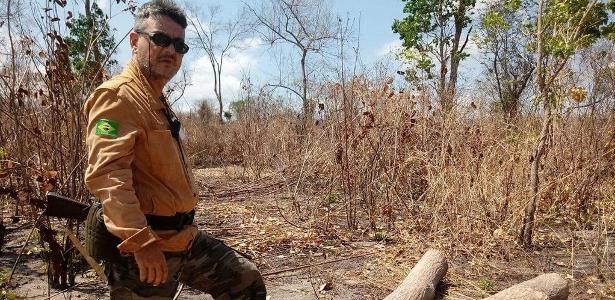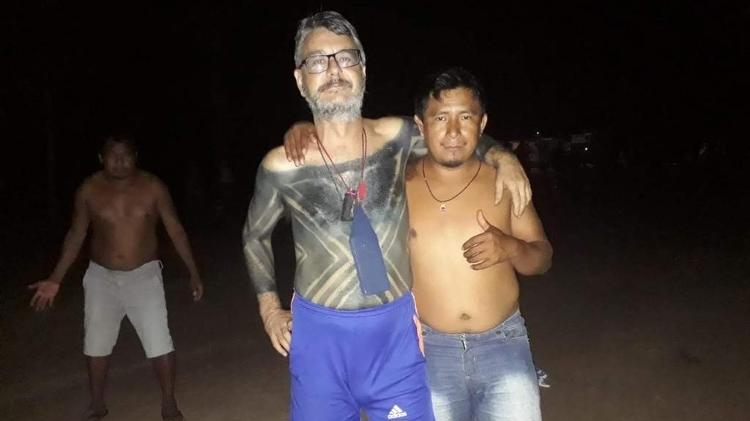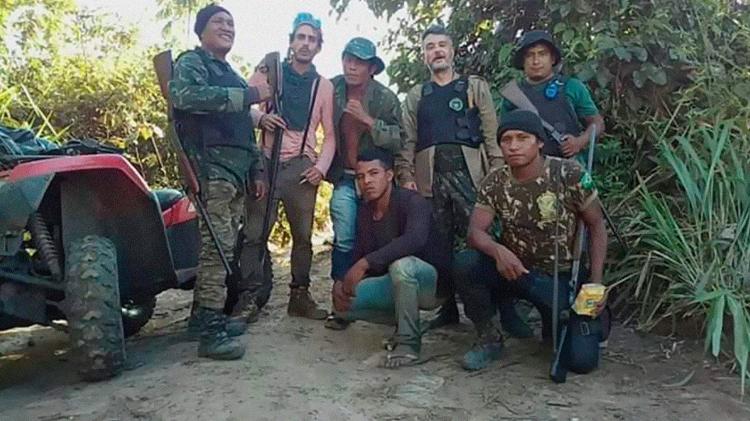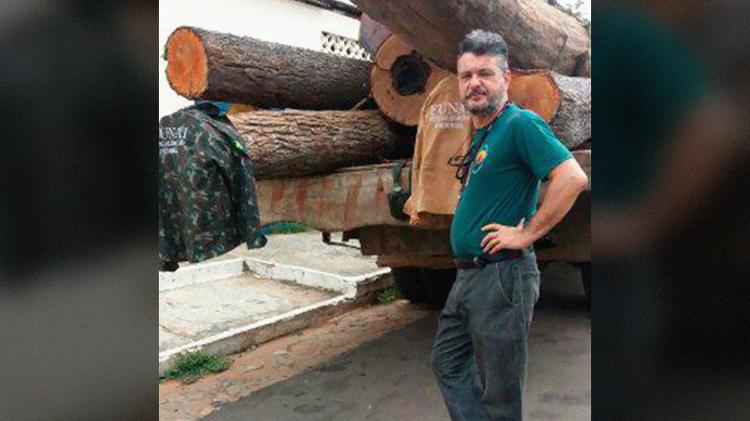In November 2019, after receiving repeated death threats, seeing his comrades killed and even having a gun pointed at his head, Ricardo Rao decided that he could no longer stay in Brazil. At that time he was working as an agent for Funai (National Indian Foundation) in Maranhão. But he didn’t just have to face environmental criminals to do his job. He was also the target of militia and administrative processes, which, according to the agent, became tools to silence and embarrass employees deemed undesirable.
Rao joined Funai in 2010 at the same time as Bruno Pereira, who was killed last week in Vale do Javari (AM). He lives in Rome today, after spending two years in temporary exile status in Norway. According to the report, Funai did not respond to requests for clarification on the case. As soon as there is a manifestation of the body, the column will be updated.
“The militia controls Funai today,” said a local journalist. UOL. “We always get threats. Bruno got it, I got it, even my mother got it. Now the difference is that threats are made. Those who make threats think they can kill. After all, Bolsonaro said it,” he said. didn’t happen,” he said.
In a long conversation with the reporter, Rao recounted every moment of the agency over the past four years. He says that despite knowing about the Jair Bolsonaro government’s attack on environmental and indigenous policies, the employees simply decided to keep working. “It’s like nothing has changed. After all, we are civil servants,” he explained.
But his account is about an organ disintegrating at Bolsonaro’s hands and a territory controlled by threats, militias and deaths. Even before the government began, the mere prospect of Bolsonarista victory and his hate speech translated into the largest number of indigenous dead.
But few imagined that the script would spoil so quickly. In early 2019, Rao conducted an operation to seize a truck linked to a suspect involved in investigations into environmental crimes in Maranhão. The action took place on the territory of the Gaviões Indians, in the municipality of Amarante do Maranhão.
“The first thing we saw on the windshield of the truck was a sticker: President Bolsonaro,” he said.
Two months later, again with his base at Imperatriz in Maranhão, the natives were once again warned of a new invasion of indigenous lands. Meanwhile, a motorcycle was found by the team and it was confiscated.
But he was surprised when the police came to the village and said they were looking for the bike. “The locals came running to warn me of the presence of the police,” he recalls. “They drove to learn about an environmental criminal’s bike,” he said angrily.
The local reported that there was even an attempt to scam a police report to claim the motorcycle was stolen.
Rao’s option was to destroy the bike, something permitted by law. In fact, he explains, this is an authoritative mechanism to avoid a common scenario in the region: the vehicle can be confiscated and reappear days later with the same criminal group.
Despite the destruction of the bike, the pressure continued. A few days later, a representative from the Military Police appears at his office and demands the return of the motorcycle. “This is what shocked me. It was an attempted extortion,” he said.
According to him, the officer even launched a veiled threat. “There are 17 timbers in the area. How are you going to keep walking?” she asked.
Weapons confiscated and warning to native’s son
In mid-2019, in the village of São José, Rao received another warning that the invaders were operating in a confirmed area. Compensation will have to be paid to families who own a house or land in the region by court decision. However, they can no longer take any concrete action, such as clearing pastures in the region.
Therefore, a court order asked the agents to go to the area and stop the illegal activities. “We went to an op for inspection and we had a court order that made things even more scary,” he said.
Upon arriving at the scene, Rao found “many weapons” on one of the farms on native land. And it was the seizure of this arsenal that started a new crisis.
According to locals, a vehicle with “five armed militia, including the Prime Minister” appeared in the area and entered a village “showing guns to everyone”.
“But to my surprise, the owner of the guns was in the car,” said the former agent. “I was threatened in every way saying they wanted the guns back,” he said.
Meanwhile, threats were also directed at the son of the local who was at the scene. “Ali scared me,” she admitted. “I was told: Do you want someone to come into your home to pick up your child?”.
The threats were followed by strong judicial harassment, he said. “After this threat, many false reports began accusing us of stealing,” Rao said, pointing to the embarrassing maneuvers. “We realized that the siege was almost over and we did not have the support of any army,” he said.
Ready-made testimonies, fake inquiries and visit to Abin for the locals
According to him, repression also included lawsuits against indigenous people who were part of Funai’s operations. Rao said he and local leaders were summoned by Montes Altos municipality officials. “When we got there, we found that the testimonies were already ready and they only asked locals to sign it. They were fake investigations,” he said.
Rao also says that days after the fake investigations, Abin (Brazilian Intelligence Agency) showed up at the Funai base and some suspects were roaming there. “They texted us,” he said.
The wanted agency denied any action against Rao. “The Brazilian Intelligence Agency (ABIN) maintains frequent corporate contacts with the National Indian Foundation (Funai). Institutional visits are frequent,” Abin said.
“ABIN intelligence officers visited Funai’s Regional Coordination in Maranhão, located in Imperatriz/MA, twice in 2019. In both cases, the visits were institutional and consisted of meetings with the Foundation’s reserve regional coordinator. Goods for donation,” the asset says.
“A potential disciplinary investigation against National Indian Foundation employees was never a matter over which the Agency had no mandate. ABIN never had a process, investigation or follow-up on former employee Ricardo Rao,” he adds.
However, Rao announced that one day after Abin’s presence, an internal affairs team came to visit him and he was being investigated for administrative disciplinary proceedings. “The complaint was a threat to another employee. I did not recognize the process and did not sign it. However, at that moment I saw that I was no longer in a position to work,” he said.
According to him, in the weeks that followed, employees requested leave or expected retirement. There was an air of stampede,” he said.
Already thinking of leaving, Rao went to one of the villages to talk to the local leaders. There, he met Paulo Paulino Guajajara, an indigenous man working to preserve the forest.
“He told me there was a large suspicion of marijuana cultivation in the jungle and a police officer came from Rio,” he said. “But there was no time to know if it was true,” he complained.
Two weeks later, a man “put a gun to my head.” “And he said to me: Whoever here licks an Indian’s ass is not permanent. It will leak,” he said. Rao suspects this is the Prime Minister from Rio.
“Shortly after they killed [o líder indígena] Paul Paulino. And that’s when I saw that I was doomed. I would be next,” he said. “These facts have given me the conviction that if I do not leave the country, I will be killed.”
Applying for asylum in Norway
Distrusting the local police authorities, he decided to go to Brasília and submit a report containing all this information to the Human Rights Council of the House of Representatives.
Two days later, on 28 November 2019, she went to Oslo, where she applied for asylum due to the threats she faced. His claim was also supported by letters sent by the deputies to the King of Norway, the Prime Minister and the Parliament.
Rao was granted temporary asylum status and hosted at the home of Lutheran priests while his case was being considered.
However, as he also holds Italian citizenship, his request for permanent asylum may be denied, and two years after disembarking in Norway, Rao chose to settle in Rome, where he would continue his exile.
“I want to go back someday. But I don’t know how. I tried to make noise before. Bruno stayed and died”, completing the nativist angrily.
source: Noticias
[author_name]







